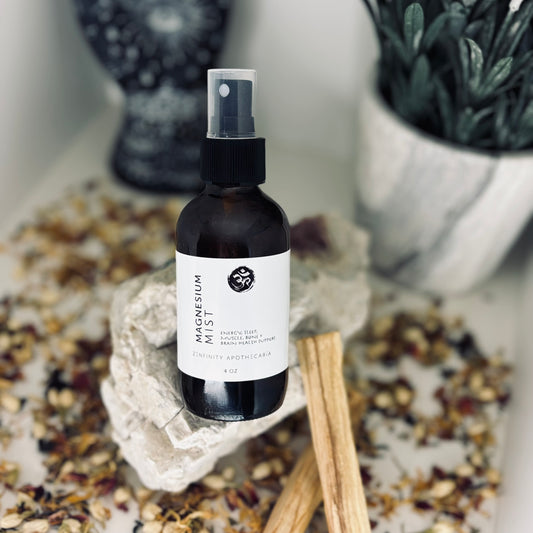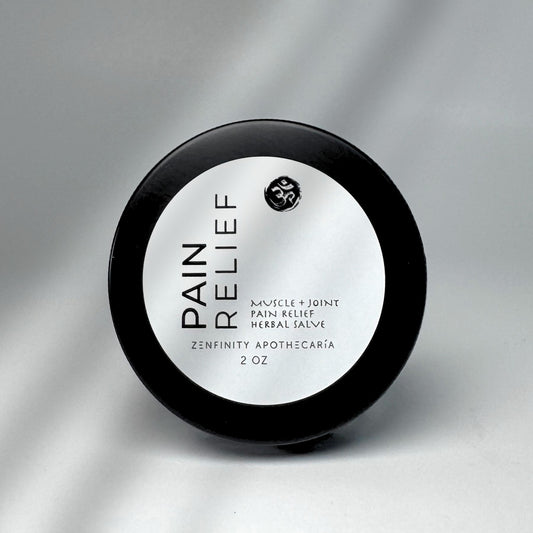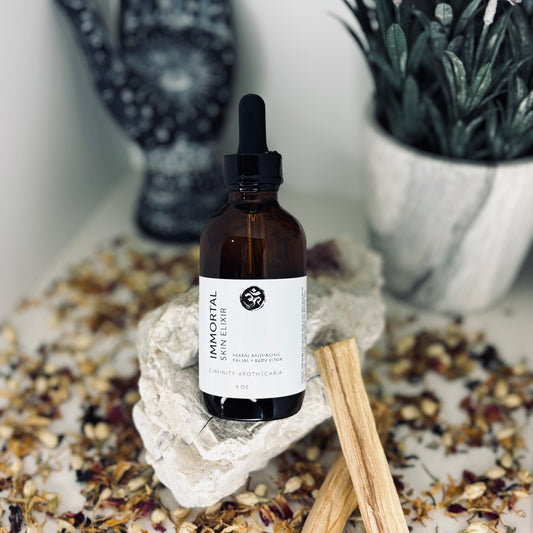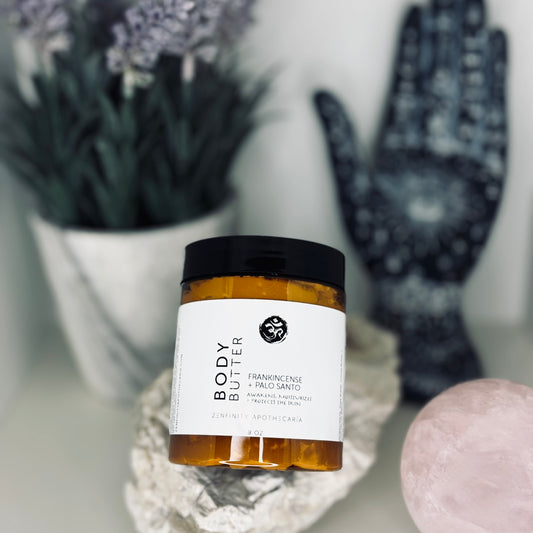Mullein (Verbascum thapsus) is a well-known herb with a rich history of use in traditional medicine, particularly for its benefits in treating respiratory ailments. This versatile plant, which is native to Europe and Asia, has long been valued for its soothing properties and its ability to support respiratory health, among other uses. It has been utilized by herbalists for centuries to alleviate a variety of conditions, from coughs and bronchitis to inflammation and minor wounds. Mullein is commonly consumed in the form of tea or tincture, which are both convenient ways to access its therapeutic properties.
In this article, we will explore the medicinal benefits of Mullein when used as an herbal tea or tincture, and how to incorporate this herb into your wellness routine.
1. Supports Respiratory Health and Relieves Coughs
One of Mullein's most well-known benefits is its ability to support respiratory health, especially for individuals suffering from coughs, bronchitis, and other respiratory conditions. Mullein has expectorant properties, meaning it helps to loosen and expel mucus from the lungs, making it an effective remedy for coughs and congestion. Additionally, it has soothing, anti-inflammatory effects on the respiratory tract, which can help reduce irritation caused by coughing or inflammation.
How Mullein Helps:
- Expectorant Action: Mullein helps clear mucus from the airways, making it easier to breathe and relieving chest congestion.
- Soothing for the Throat: The herb’s anti-inflammatory compounds help soothe an irritated throat, making it a go-to remedy for dry coughs or sore throats.
- Lung Health: Mullein also has mild bronchodilator effects, which can help open the airways and improve breathing.
How to Use Mullein for Respiratory Health:
- Herbal Tea: Mullein tea is one of the most popular ways to use the herb for respiratory issues. To make Mullein tea, steep 1–2 teaspoons of dried Mullein flowers or leaves in hot water for 10–15 minutes. Drink 2–3 cups a day to help relieve coughs, congestion, and respiratory discomfort.
- Tincture: A tincture of Mullein extract can also be helpful, especially when you need a more concentrated dose. Take 20–30 drops of Mullein tincture in water or juice up to three times per day to support lung health and ease coughing.
2. Soothes Sore Throats and Ear Infections
Mullein has been used as a remedy for sore throats and ear infections for centuries. The herb has both anti-inflammatory and analgesic (pain-relieving) properties, which can help alleviate throat irritation and reduce swelling. Additionally, Mullein oil, which is made from the flowers, is commonly used in earaches and infections due to its natural antibacterial and anti-inflammatory effects.
How Mullein Helps:
- Soothing Throat: Mullein's mild astringency and anti-inflammatory compounds provide relief for sore throats and help reduce swelling.
- Ear Infections: Mullein oil, when used topically in the ear, can help fight off infections and ease pain, especially in combination with garlic or other antibacterial herbs.
How to Use Mullein for Sore Throats or Ear Infections:
- Herbal Tea: Drink Mullein tea to help soothe a sore throat. It works by coating and calming the mucous membranes in the throat.
- Tincture: You can use Mullein tincture in a diluted form (10–15 drops in water) to soothe a sore throat.
- Mullein Oil for Ear Infections: To treat ear infections, you can use Mullein flower oil, which can be gently applied to the ear canal. Warm the oil slightly and place a few drops in the affected ear to relieve pain and reduce inflammation.
3. Anti-Inflammatory Benefits
Mullein is a natural anti-inflammatory, which makes it an excellent herb for addressing conditions that involve inflammation. Whether it's inflammation of the respiratory tract, joints, or digestive system, Mullein can help reduce swelling and provide relief from pain. Chronic inflammation is a contributing factor in many common ailments, so incorporating Mullein into your routine can be beneficial for overall inflammation management.
How Mullein Helps:
- Reduces Inflammation: Mullein’s anti-inflammatory compounds can reduce the swelling associated with conditions such as asthma, arthritis, and colitis.
- Promotes Healing: The herb may help speed up recovery from injuries or illnesses by supporting the body’s inflammatory response.
How to Use Mullein for Inflammation:
- Herbal Tea: Drinking Mullein tea regularly can help reduce inflammation in the body, particularly in the respiratory system. It can also support overall health and healing.
- Tincture: A concentrated dose of Mullein tincture can be taken to help reduce inflammation, particularly in the respiratory tract or joints. Follow recommended dosages and consult a healthcare provider if you are dealing with chronic inflammation.
4. Supports Skin Health and Wound Healing
Mullein has also been used topically to promote skin health and aid in the healing of minor cuts, bruises, and wounds. The plant’s soothing properties can help calm irritated skin, reduce inflammation, and speed up the healing process. Mullein’s antimicrobial properties also make it effective in preventing infection in wounds or cuts.
How Mullein Helps:
- Antiseptic Properties: Mullein contains compounds that have antimicrobial effects, which can help prevent infection in cuts and wounds.
- Soothing for Skin: Mullein’s soothing qualities help to calm irritated or inflamed skin, making it useful for conditions like eczema or minor rashes.
How to Use Mullein for Skin Health:
- Herbal Tea: Drinking Mullein tea can support skin health from the inside by promoting overall healing and reducing inflammation.
- Topical Application: You can make a poultice from Mullein leaves and apply it to wounds or skin irritations to promote healing and reduce inflammation. Mullein oil can also be applied directly to affected areas for its antiseptic and soothing effects.
5. Promotes Digestive Health
Mullein can also be beneficial for digestive health, particularly in soothing and reducing inflammation in the gastrointestinal tract. The herb is thought to support the mucous membranes in the gut, easing discomfort associated with conditions like gastritis, ulcers, and colitis.
How Mullein Helps:
- Soothes the Digestive Tract: Mullein can help soothe inflammation in the stomach or intestines and may assist in relieving symptoms like indigestion, bloating, and abdominal discomfort.
- Laxative Properties: Mullein has a mild laxative effect, which can help with constipation when used over a short period.
How to Use Mullein for Digestive Health:
- Herbal Tea: Drinking Mullein tea can help ease digestive discomfort and reduce inflammation in the gut. For best results, drink 1–2 cups a day, especially if you are experiencing digestive issues.
- Tincture: A tincture of Mullein can also be used to support digestive health. Take it in small doses to support your gastrointestinal system and reduce bloating or discomfort.
6. Supports Ear Health
In addition to its internal benefits, Mullein is widely used in ear health, particularly in the form of Mullein flower oil. The oil is often infused with other medicinal herbs, such as garlic or St. John's Wort, for its synergistic effects in treating ear infections and relieving ear pain. It is also commonly used for its ability to reduce inflammation and fight infections in the ear.
How Mullein Helps:
- Ear Infections: Mullein oil is often used for its anti-inflammatory and antimicrobial properties to treat ear infections and reduce pain.
- Soothing Earache Relief: The oil helps to soothe irritation and inflammation in the ear, providing relief from discomfort.
How to Use Mullein for Ear Health:
- Mullein Oil: To relieve ear pain or infection, gently warm Mullein flower oil and place a few drops in the ear canal. Be sure to consult a healthcare professional if the pain persists or if there is a suspected infection.
How to Incorporate Mullein Into Your Routine
Mullein (Verbascum thapsus) is a powerful and versatile herb that offers numerous medicinal benefits, particularly for the respiratory system, skin health, inflammation, and digestive support. When used in the form of herbal tea or tincture, Mullein becomes an accessible and effective way to harness its therapeutic properties.
Best Practices for Use:
- For respiratory health: Drink Mullein tea or use the tincture to clear mucus, ease coughs, and soothe respiratory inflammation.
- For sore throats or ear infections: Use Mullein tea or tincture to soothe a sore throat, or apply Mullein oil to the ear for infection relief.
- For inflammation: Regular use of Mullein tea or tincture can help reduce inflammation in the body, particularly in the joints or respiratory tract.
- For skin health: Topical application of Mullein oil or a poultice can help heal wounds and soothe irritated skin.
- For digestive health: Drinking Mullein tea can promote overall digestive health and soothe inflammation in the gastrointestinal tract.
As with any herbal remedy, it’s important to consult a healthcare provider, especially if you are pregnant, nursing, or taking medications. Mullein is a powerful herb thatcan be a natural and effective tool in your wellness routine, supporting everything from respiratory health to skin healing. Whether in the form of a soothing tea or a potent tincture, Mullein offers a range of benefits that can help improve overall health and vitality.





